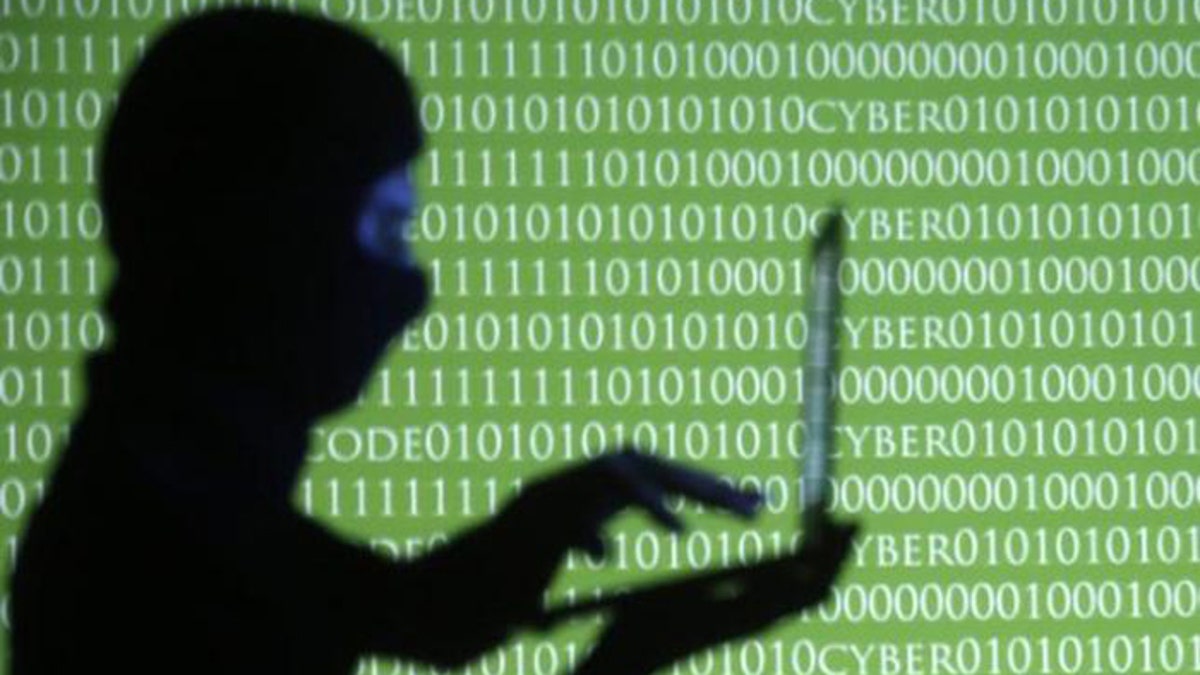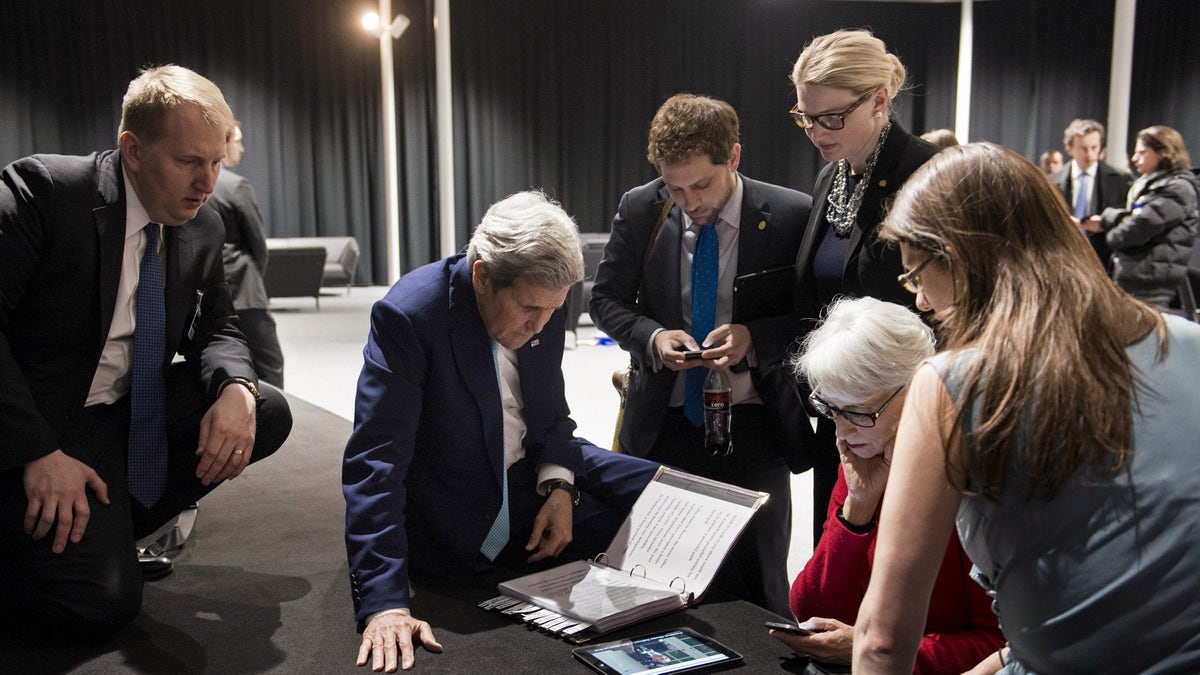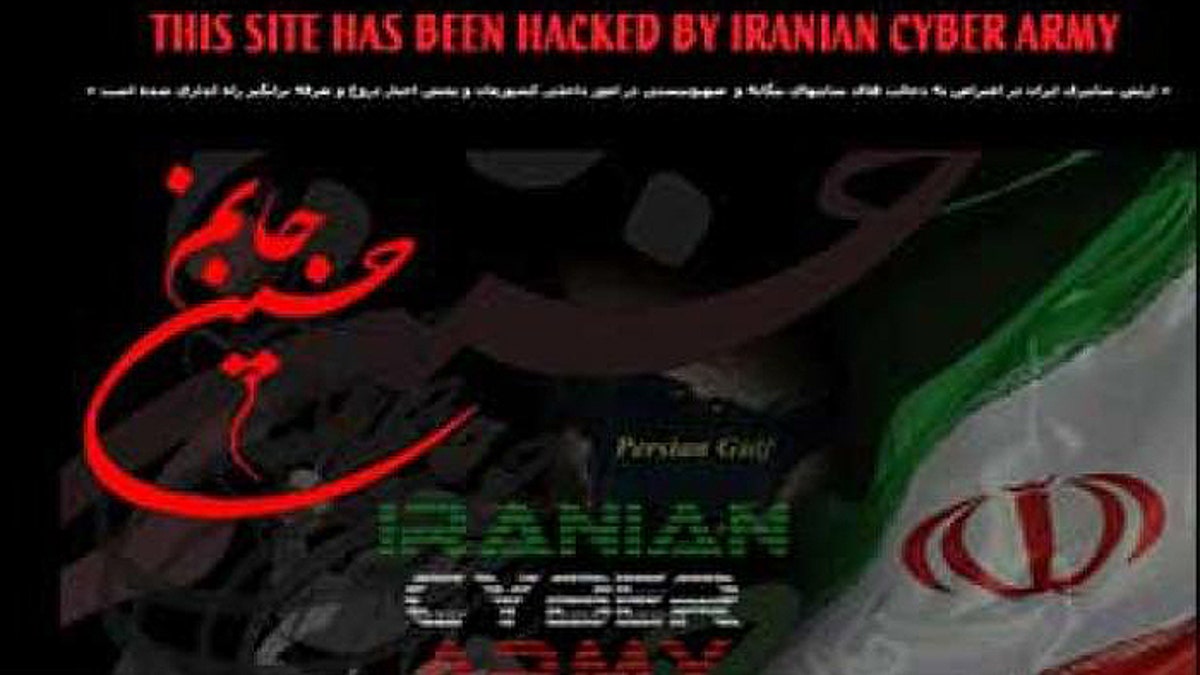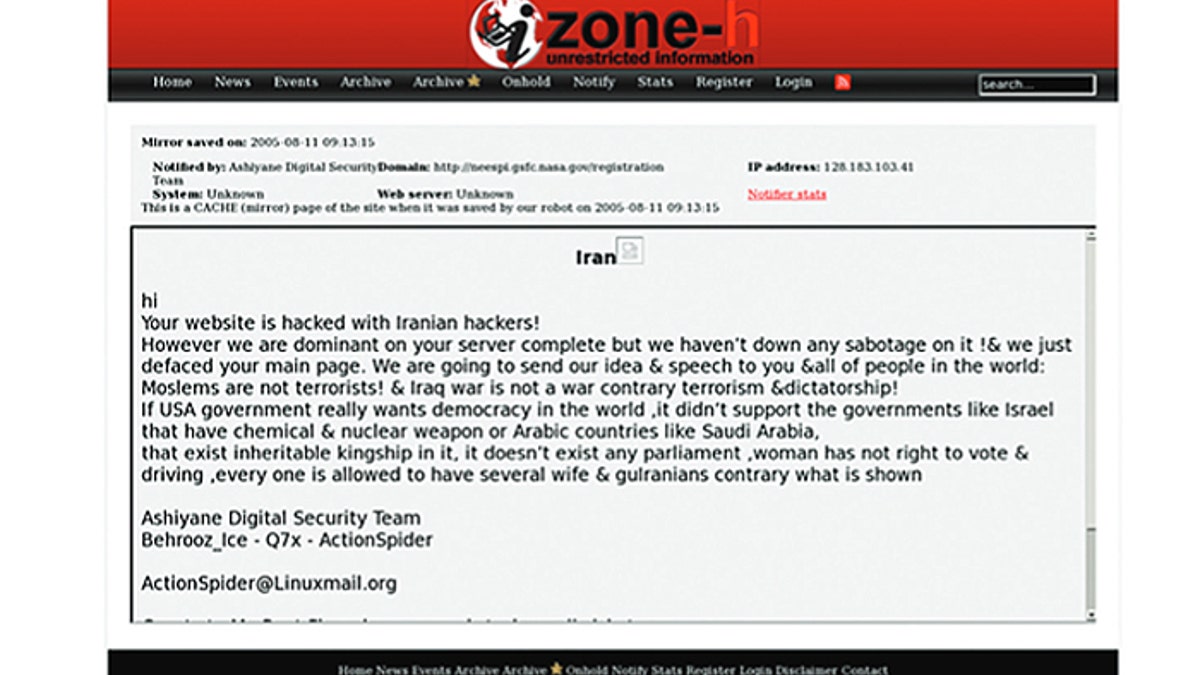
Hacker in balaclava is silhouetted as he poses with a laptop in front of a screen projected with the word 'cyber' and binary code, in this picture illustration taken in Zenica in 2014. (Reuters)
Iranian cyber-terrorists are launching more sophisticated and frequent attacks against the U.S. and its allies, and the proposed deal to ease sanctions on the Islamic Republic could give it the money and technology to ramp up its digital warfare, according to a new report.
The study, by the American Enterprise Institute and the cybersecurity firm Norse and released on Friday, follows similar reports by other online threat detection firms and analysts as the U.S. plans to ease financial sanctions on Iran under the framework of a deal to limit the country’s nuclear capabilities. While all eyes are on the nuclear capability, the report warns it could be online attacks that explode.
“The immediate issue now with sanction relief really requires careful thought.”
"The lifting of sanctions as a result of the recently announced framework for a nuclear deal with Iran will dramatically increase the resources Iran can put toward expanding its cyberattack infrastructure," the report states. "We must anticipate that the Iranian cyberthreat may well begin to grow much more rapidly."
There is every reason to expect Iran to ramp up damaging digital attacks on foreign governments and corporations, given that the program is already expanding despite the sanction, say experts.
“What we’ve noticed is a steady increase in attacks both from state-sponsored [Iranian attackers] and groups affiliated with Iran,” Sam Glines, CEO of Norse, told FoxNews.com.
The AEI-Norse study says the size and sophistication of Iran’s hacking capabilities have grown within recent years, and the country has already penetrated well-defended networks in the U.S. and Saudi Arabia, destroying sensitive data. Hackers connected to Iranian computer systems have also launched attacks on Israel, according to the study.
The report attributes several high-profile cyberattacks to malicious Iranian cyber activity including the 2011 denial-of-service attacks on the websites of JPMorgan Chase, Citibank, and Bank of America. It also says Iranians brought down the computer systems of the Las Vegas-based Sands Casino in February 2014, after owner Sheldon Adelson suggested Iran should be bombed with a nuclear weapon.
“We see the Iranians continue to expand their sophistication,” Fred Kagan, director of AEI’s Critical Threats Project, told FoxNews.com

Cyber experts fear the deal being negotiated with Iran to ease sanctions in return for a pledge to drop pursuit of nuclear weapons could boost Iran's ability to wage cyber war. (REUTERS)
But Kagan is raising new concerns about whether a proposed deal to ease some financial sanctions on Iran, in exchange for increased surveillance and limitations on its nuclear program, would allow the country access to more cash to beef up its cyber warfare efforts.
“The immediate issue now with sanction relief really requires careful thought,” Kagan said.
IRANIAN CYBER THREAT DATES BACK YEARS
Kagan also believes easing sanctions that would allow Iran easier access to technology and is likely to enable the country’s regime to advance its cyber warfare program.
Other cyber threat detection analysts have backed up Kagan’s concerns about a growing threat from Iran targeting cyber infrastructure in the U.S. and elsewhere.

A December 2014 report by Cylance says Iran goes to great lengths to secretly advance its cyber warfare efforts by blurring “the line between legitimate engineering companies and state-sponsored cyber hacking teams to establish a foothold in the world’s critical infrastructure.”
“The scary thing is they’re advancing at a rate that’s higher than normal,” Cylance Vice President of Strategy Jon Miller told FoxNews.com.
Meanwhile, the Senate Foreign Relations Committee has passed legislation that would allow Congress to have a say on a nuclear deal between the U.S. and Iran.

Chairman Bob Corker, (R-Tenn.), has expressed concerns about the easing of sanctions against Iran under the deal.
Ranking Member on the committee Sen. Ben Cardin (D-Md.) has worked to bridge differences between Congress and The White House over the deal.
"I am concerned about what Iran is doing on many fronts, including cyber capabilities, which is another example of Iranian sponsorship of terrorism," Cardin said. "It is why the Iranian Nuclear Review Act, which is aimed at preventing Iran from obtaining nuclear weapons, specifically says that U.S. sanctions on Iran related to terrorism and ballistic missiles remain in place.”
